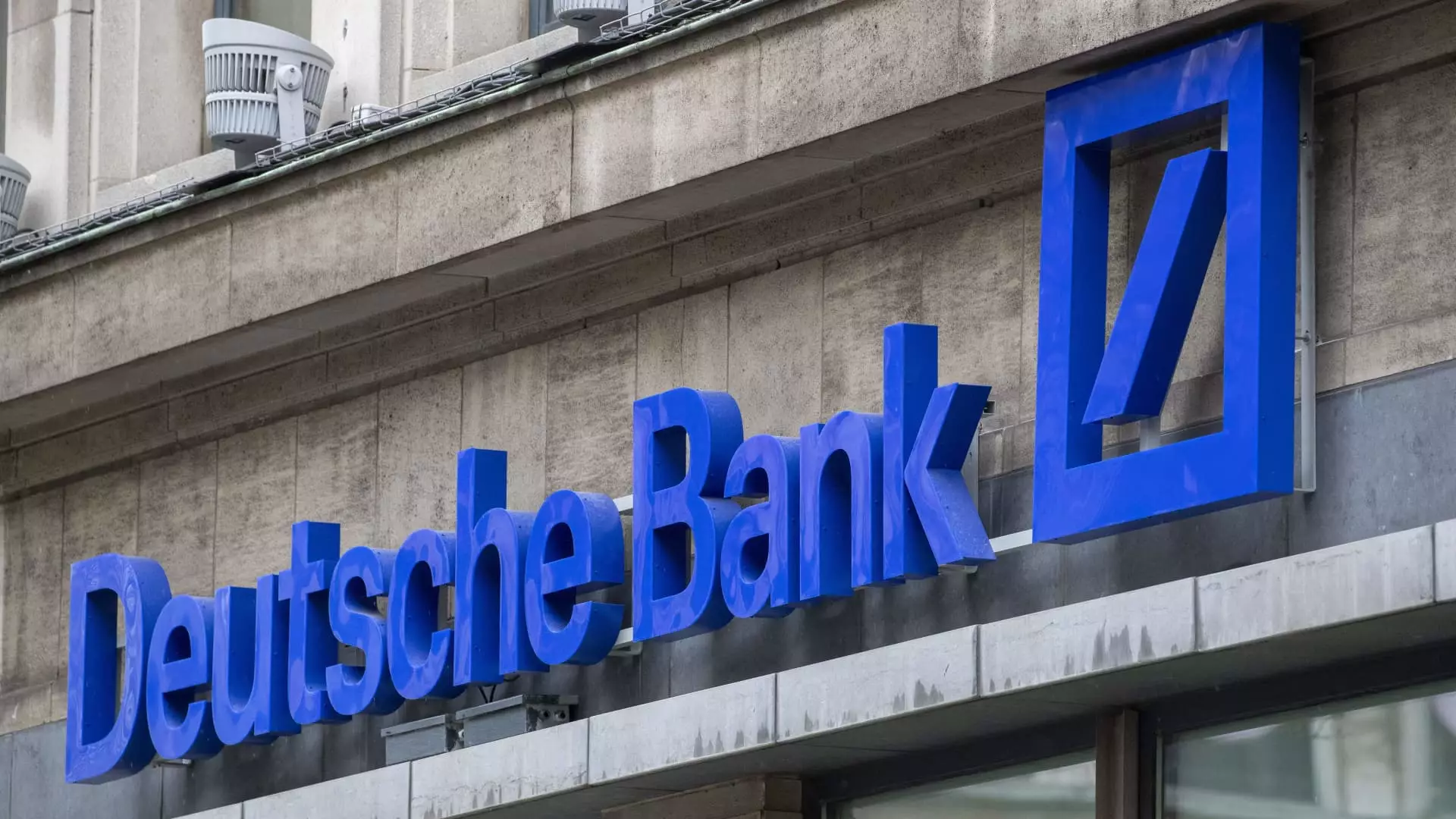Deutsche Bank’s recent second-quarter performance signals an unsettling paradox: impressive profitability at the surface level cloaked in underlying vulnerabilities. The bank’s net profit of 1.485 billion euros surpassed expectations, reflecting a resilient core that refuses to fade despite the headwinds. However, a deeper scrutiny reveals that this veneer of strength is built on shaky foundations. While beating forecasts and staying on course for 2025 targets may seem like cause for celebration, these numbers mask the ongoing struggles of the bank’s key divisions and external economic pressures that continue to threaten its stability.
The surge in profit was largely propelled by strategic gains in currencies and a one-time boost from favorable euro movements against the U.S. dollar. Yet, this advantage is transient and cannot substitute for consistency and organic growth. The fact that revenue hovered in line with analyst forecasts indicates only moderate operational momentum rather than a genuine turnaround. Moreover, the profit before tax of 2.4 billion euros, up 34% year-on-year, suggests a sharp rebound from previous losses but does little to dispel concerns about the sustainability of such gains in an increasingly volatile environment.
Investment Banking: A Tale of Two Halves
The second quarter painted a picture of divergence within Deutsche Bank’s core investment banking segment. On one side, fixed income and currencies experienced an 11% revenue increase driven by heightened client activity and volatility—a reflection of global economic tensions and geopolitical uncertainties. These areas benefited from market turbulence, allowing Deutsche Bank to post a welcome uptick in these highly volatile sectors.
Conversely, the origination and advisory wing, traditionally a lucrative segment, faced a painful 29% revenue decline. Market uncertainty and weaker debt origination represent underlying fragility in Deutsche Bank’s ability to sustain high-margin advisory work. This dichotomy exposes a distressing reality: Deutsche Bank’s fortunes are increasingly tied to short-term market conditions rather than steady, long-term growth strategies. It underscores how dependency on market volatility for profits can be a double-edged sword, especially if such turbulence becomes the new norm rather than an anomaly.
Furthermore, the stagnant corporate banking revenues suggest limited expansion in servicing core clients within Europe. While the bank’s attempt to leverage defense-related investments and increased European spending is understandable, it remains an opportunistic strategy rather than a transformative change in core bank dynamics.
Balancing Capital and Risks
Deutsche Bank’s robust CET 1 capital ratio of 14.2% is a positive sign under Center-Right conservative standards, reflecting sufficient buffers to weather potential financial storms. However, this strength must be contextualized within broader European economic uncertainties. As the European Central Bank maintains low interest rates—recently cut to 2%, with little prospect of significant hikes—banks face a persistent squeeze on net interest margins, a fundamental component of profitability.
While CEO Christian Sewing emphasizes the bank’s alignment with strategic targets, the realities of a sluggish European economy, trade tensions, and political instability cast doubt on whether such targets are truly attainable without excessive risk-taking or unsustainable expansion. The recent surge of defense spending and geopolitical tensions offer pockets of opportunity but also pose risks of overinvestment or misallocation of resources, especially as Europe’s unity on trade policy remains fragile amidst the looming U.S.-EU tariff negotiations.
In the broader context, Deutsche Bank’s cautious optimism must be tempered by the acknowledgment that structural challenges—regulatory constraints, market saturation, and geopolitical headwinds—are ongoing threats that no short-term profit uptick can fully mitigate. A center-right approach should champion prudent risk management while fostering strategic resilience, not complacency.
Economic Headwinds and Political Uncertainty
Beyond internal banking metrics lie macroeconomic and political landscapes that threaten to undermine progress. The quieting of German political turmoil offers a temporary lull, but at a cost—trade uncertainty and potential tariff disputes with the United States loom large. The Bundesbank’s warning of a possible recession in Germany if tariffs materialize in August reflects a sobering reality: Europe’s economic health remains precarious, and the banking sector is no stranger to such volatility.
While Deutsche Bank seeks to position itself as a defender of European resilience, the path forward is riddled with obstacles. The pursuit of defense-related investments, though promising, is a strategic gamble in an environment where political cohesion and trade agreements are fragile. A prudent, center-right economic stance would suggest that while opportunistic investments are essential, they should be balanced with caution and an eye toward long-term stability rather than short-term gains.
This state of affairs calls for Deutsche Bank to reassess its strategic priorities continuously, recognizing that superficial financial metrics do not compensate for underlying economic vulnerabilities. The bank’s resilience is admirable, but not invulnerable—an essential truth that should inform its future decisions and risk appetite.

